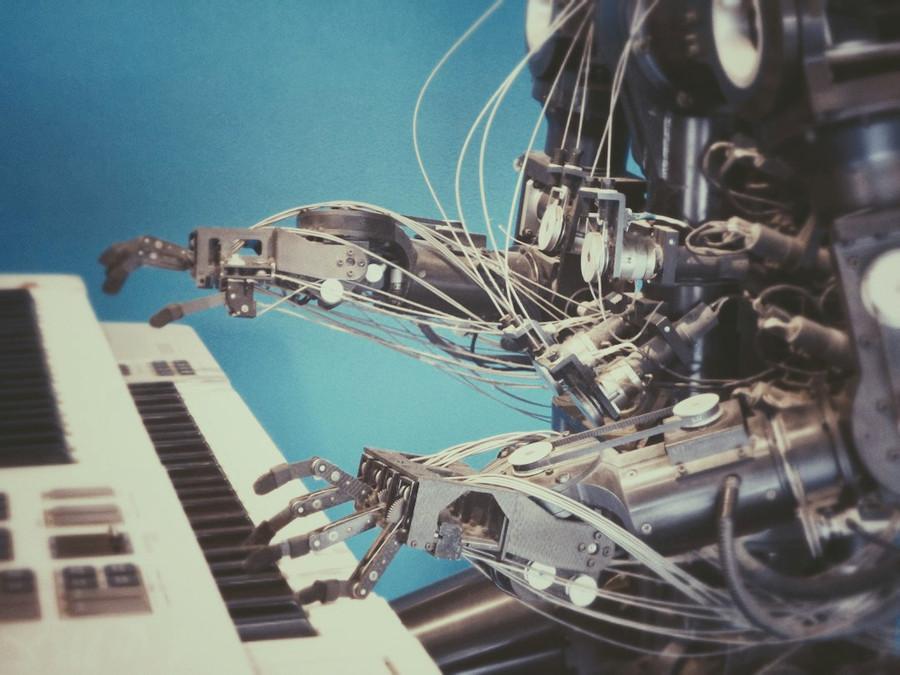Should You Share AI-Driven Customer Insights with Your Customers?
Curated from: hbr.org
Ideas, facts & insights covering these topics:
9 ideas
·1.06K reads
17
Explore the World's Best Ideas
Join today and uncover 100+ curated journeys from 50+ topics. Unlock access to our mobile app with extensive features.
AI, the most rapid change of technology nowadays, helps companies understand their customer better. And many theories say AI will know us better than ourselves. As a customer, I feel these apps, such as e-commerce, help me search for the product I want. However, as a human, there’s something that can be missed from this transformation. Will AI be our assistant in our everyday life?
8
157 reads
Self-knowledge is the cornerstone of human identity.
Without firm self-knowledge, it’s hard to construct a logical story of who we are, the story that would make our life experience and interaction with others. This skill is complex to master, and research suggests that only 10-15% of people are self-aware.
7
161 reads
The essence of AI is a prediction machine, which consists of algorithms capable of (1) finding patterns in large datasets and (2) training themselves to get “smarter” (increase their predictive accuracy). There are clear reasons to expect AI to improve our ability to understand things, including ourselves.
7
121 reads
The widespread adoption provides compelling evidence for the value of AI to consumers; their AI engines do little to improve our self-knowledge. So, is there any problem?
- Our choices become more data-driven, the consumer sophistication decreases. This is a missed opportunity in the face of growing product supply.
- When the algorithms do work, their work may sound “creepy”; like how did they know what I wanted even I didn’t know
7
114 reads
Imagine how ChatGPT will transform its knowledge of humanity without boosting our self-knowledge.
Perhaps, to avoid the dystopian scenario predicted by Yuval Harari, we must democratize the algorithms' knowledge of us, at least by ensuring that companies have to share the personal insights they’re gathered with us.
Every trivial choice we make every day reveals central aspects of our identity. Marketers have known this secret for years, so the fundamental choice between Pepsi and Coke, Nike, and Adidas is not based on rational reasons but on identification with the brand, which rests on our interpretation of that brand’s personality.
7
117 reads
The more similar you think the brand to your personality or character, the more you will buy the product.
The opportunity for AI would be to make us aware of the gaps between how we want to be seen and what are brand and product choices convey to us. As Nathalie Nahai says in her late book, consumers are highly committed to adjusting their preferences based on the reputation of brands, including their moral and political orientation.
7
109 reads
There are reliable and systematic links between our preferences and our personality traits
Consider a few examples: your choice of movies reveals the degree to which you are intelligent, conscientious, and agreeable, and your Facebook data reveals whether you are friendly or introverted. There are few exceptions to this rule, and the list of correlations between human personality traits and product preferences needs to be revised even to summarize.
AI could be a real-time coach, giving us regular feedback on our daily behavior. Wearables can translate physiological signals into actionable feedback on our fitness, energy, sleepiness, or stress levels.
7
97 reads
Brands and consumers have a mutual interest in understanding consumers’ personalities. In the 1950s, marketing campaigns were grounded in focus groups and telephone surveys to segment customers “psychographically” to improve the product.
With AI, we can get a much more personalized version updated in real-time, enhancing the connection between brands and consumers. A brand is a promise to deliver what people want or need.
7
94 reads
IDEAS CURATED BY
A learner | Writer of Melva's Note on Substack | High curiosity about psychology and human development.
CURATOR'S NOTE
In the age where data has become commoditized, but the insights and profits are being exclusive for ginormous tech players, what better way to harness consumer trust and loyalty than by giving them back valuable insights, that can turn them into smarter customers, and also self-aware humans.
“
Melva Bintang's ideas are part of this journey:
Learn more about fashion with this collection
Identifying the skills needed for the future
Developing a growth mindset
Creating a culture of continuous learning
Related collections
Similar ideas
Read & Learn
20x Faster
without
deepstash
with
deepstash
with
deepstash
Personalized microlearning
—
100+ Learning Journeys
—
Access to 200,000+ ideas
—
Access to the mobile app
—
Unlimited idea saving
—
—
Unlimited history
—
—
Unlimited listening to ideas
—
—
Downloading & offline access
—
—
Supercharge your mind with one idea per day
Enter your email and spend 1 minute every day to learn something new.
I agree to receive email updates





